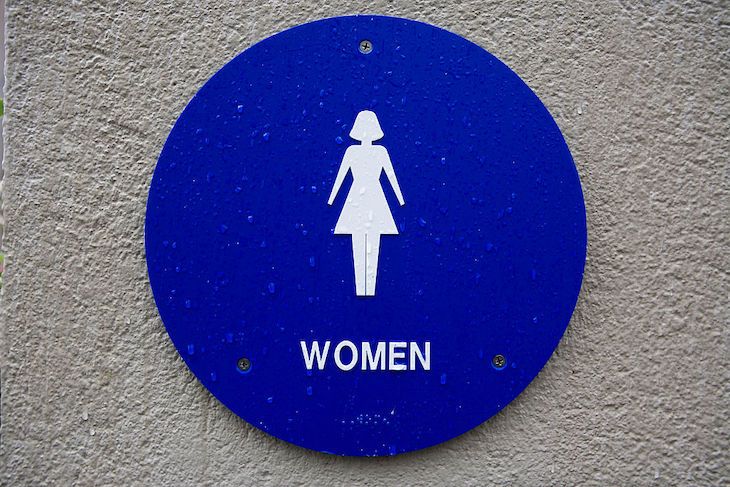The problems with the European Convention on Human Rights (ECHR) and the bureaucracy behind it aren’t limited to the spanners they push into the wheels of immigration enforcement. They also now appear to be meddling over hard-won sex-based rights. A letter from the Council of Europe’s Human Rights Commissioner, Michael O’Flaherty, is likely to be seized upon by the trans lobby to further their cause.
An urgent ECHR exit just became a great deal more plausible – and rightly so
The missive suggests that any serious government effort to implement the landmark ‘For Women Scotland’ Supreme Court ruling – which held that the legal definition of ‘woman’ in the Equality Act is based on biological sex – could possibly amount to an existential threat to the human rights of trans people.
The letter, sent to the UK chair of the Joint Committee on Human Rights, Lord Alton, earlier this month, warns:
‘An…area of concern is that blanket practices or policies on access to gender-segregated spaces
could be put in place, which would require trans people to habitually “out” themselves publicly when accessing services or facilities, either directly (by being asked about their sex assigned at birth) or indirectly (by having to use services or facilities in such a way that it becomes apparent they are trans).’
The meddling doesn’t stop there. It goes on to say that ‘forced or non-consensual disclosure of private data falls within the sphere of private life under Article 8 of the Convention’.
We can begin with an obvious point. Assuming Mr O’Flaherty is right about the attitude of the Strasbourg judges, this appears to be remarkable, and unacceptable, overreach from the human rights establishment in both style and substance. Once, that establishment sat in the background and only intervened in fairly extreme cases. Today, we find its apparatchiks writing impertinent letters as a matter of course to elected governments, essentially giving them regular public instructions on the social policies they are to adopt.
That’s before we get to the substance of the demand. When we ratified the ECHR in 1951, everyone assumed that it was there to deal with matters of the utmost seriousness: torture, government death squads, wholesale suppression of trade unions or the opposition press, and other issues too important to be left to the ordinary democratic process to decide. If anyone had suggested then, or even twenty years ago, that this might take in things like who can, and can’t, use women’s changing rooms, they would have been laughed to scorn.
Not now. The Strasbourg court has for some time seen itself as not so much an interpreter of the text of the ECHR, but a moulder of it in line with progressive opinion: it admits as much, rather coyly referring to the ECHR is a ‘living instrument.’
As this latest episode shows, the court, and the officials at the Council of Europe that oversee it, increasingly show little compunction about being openly partisan, not only in questions of social policy but now also in the culture wars. To such a body of people it seems the most natural thing in the world to set themselves up as solemn arbiters of who should be allowed to use the ladies’ loos, and then expect elected politicians to fall in line without argument.
Mr O’Flaherty and the Council of Europe bureaucracy are entitled to their views on trans rights. But so are the women of Britain – and there are more of them. A large majority of these, like the redoubtable nurses in Fife and Darlington who have made this a point of principle in the ‘For Women Scotland’ case, welcome the return to common sense represented by the Supreme Court’s judgment in April. Pragmatically they may accept that an ex-male who looks, dresses and behaves just like a woman may sometimes invade their space; this is probably no big deal. On the other hand, they rightly feel outraged at being expected to disrobe in front of someone who appears to be of the opposite sex. They have every right to resent attempts to force this on them, whatever their elected representatives may say in the name of some abstract idea of the real meaning of private life under Article 8 of the ECHR.
Tory leader Kemi Badenoch sensibly admitted last week what the rest of us knew: that the ECHR was more a hindrance than a help to good government. She committed the Tories to giving notice to leave it. That announcement was directed very much at those concerned at excessive immigration. But human rights sceptics now have another constituency, perhaps even bigger: women who believe in their sex-based rights. An urgent ECHR exit just became a great deal more plausible, and rightly so.







Comments